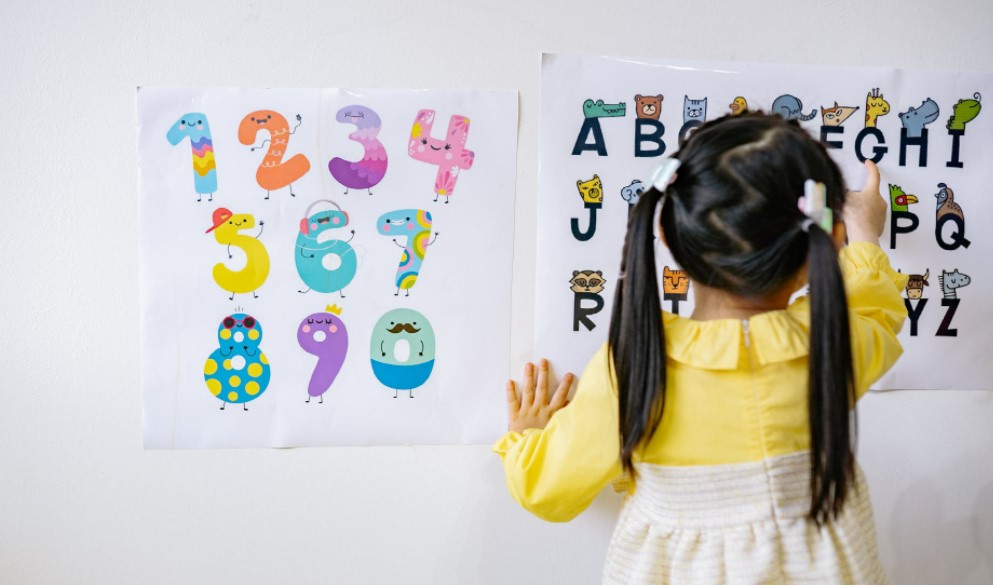
New Brunswick Child Care Workforce Development Snapshot
Authors: Jules Maitland, Amanda Hachey
Early learning and child-care facilities, and the educators who work within them, are New Brunswick’s invisible infrastructure, remaining open throughout the COVID-19 pandemic but receiving much less attention from public policies and media stories than other essential services. They enable today’s society to function while providing future generations with foundational education and essential care. The recently announced federal-provincial initiative to provide this essential service for $10 a day promises to further increase demand on an already strained sector.
It is timely then, that the Government of New Brunswick recently developed its first Early Childhood Educator Workforce Strategy, with promises of wage increases and greater support for early childhood educator (ECE) post-secondary training, professional development, and recruitment and retention.
Child care in New Brunswick is primarily delivered through private, for-profit centres and homes. Only one-third of the sector is composed of non-profit organizations. At the time of writing, New Brunswick is the only Atlantic province with no professional association or certification for ECEs, although talks are underway on this front.

Current makeup
The Department of Education and Early Childhood Development sets the province’s overall policy, legislation and regulations for early learning and child-care facilities. The Early Childhood Services Act outlines licensing requirements in early learning and child-care centres (ELCC) and early learning and child-care homes.
A 2019 survey found that
59.1 percent of children aged five and under participate in some form of non-parental early learning and child care.
Regulated full- or part-time centre-based spaces now exist for 45 percent of children aged five and under (up from 35 percent in 2019), with 15,034 regulated early learning and child-care spaces available for the estimated 33,048 children under age five.
As the only officially bilingual province, the language of child-care service is an important consideration. The 2016 census found the mother tongue is English for 65.4 percent, French for 32.4 percent, Indigenous languages for 0.3 percent, and other languages for 3.1 percent of the New Brunswick population. As of March 2020, there are 839 facilities (503 Anglophone, 336 Francophone), of which:
- 58.8 percent offer services in English;
- 39.7 percent offer services in French, and;
- 1.6 percent offer bilingual services.
In 2019, the province completed the implemention of a designation for early learning centres and homes, recognizing licensed facilities that offer services to preschool children and including obligations such as promoting accessibility and inclusion and implementing an annual quality improvement plan. Open to non-profit and for-profit facilities, eligibility is determined by compliance with licensing policies, offering preschool services to children aged five and under and implementing the provincial curriculum (English or French). By March 2020, 91 percent of eligible ELCCs had obtained designation.
Regulated early learning and child-care centres are allowed a maximum of 60 spaces overall, with the following staff-to-child ratio and group size:
| Age Group | Staff-to-Child Ratio | Max Group Size |
| 0 – 12 months | 1:3 | 6 |
| 13 – 24 months | 1:5 | 10 |
| 25 – 35 months | 1:6 | 12 |
| 3 years | 1:8 | 16 |
| 4 years | 1:10 | 20 |
The maximum capacity for regulated early learning and child-care homes, including the provider’s own children under 12 years old, depends on the ages of attending children. For preschoolers, the maximum group size for infants up to age 24 months is three and five for groups of children aged two to five years. Mixed-age groups of up to five children are permitted but must include one school-aged child and may not exceed two infants.
Child-care costs have continued to rise steadily, with 2020 data estimating the cost of full-time care to be $36.21 a day for infants and $31.46 a day for preschoolers. A parent subsidy program is available to families of children attending designated centres (ages five years and under). It offers a sliding scale of support to families with a gross annual household income before deductions of $80,000 or less, or with child-care expenses that are more than 20 percent of the gross annual household income before deductions. Financial assistance is also available to families of children at non-designated centres and after-school services who have a net income of $55,000 or less (subject to additional eligibility criteria).
In December 2021, the province signed a federal-provincial funding agreement, committing to provide New Brunswick families with $10-a-day child care, on average, by 2026.
While good news for parents, it is unclear what this means for the financial viability of the New Brunswick child-care system.

Existing workforce
Census data from 2016 found 3,680 individuals working as ECEs and ECE Assistants in New Brunswick. Of those, 95 percent were female, six percent were Indigenous, five percent were immigrants and three percent were visible minorities. One-quarter (25 percent) are 45 years or over and, overall, younger ECEs have a higher proportion of post-secondary education.
Minimum training requirements to work as an ECE in New Brunswick facilities are successful completion of first aid and CPR certificates, and an ECE certificate or approved equivalent. All untrained educators must complete the province’s 90-hour introduction to early childhood education online course.
To become a credentialled ECE, candidates must successfully complete a one-year, full-time ECE program from a provincially approved education institution. Additional training may be required to work as an ECE in First Nations centres based on accountability to several different governing bodies.
As of July 1, 2020, 50 percent of educators at a facility must hold a one-year ECE certificate or equivalent. In addition, all trained educators working in a designated facility must complete 30 hours of professional development every three years.
In 2020, there were an estimated 4,543 educators at regulated early learning and child-care facilities.
Of those, 46.9 percent are considered untrained, 39.5 percent hold a recognized ECE certificate or diploma, and the remaining hold a B.Ed or other university degree. When considering differences between Anglophone and Francophone sectors, it is estimated that 57.9 percent of Anglophone educators are trained, compared to only 45.1 percent of Francophone educators.
All licensed early learning and child-care facilities are eligible to register for the province’s Wage Support Program for Early Childhood Educators, which offers wage top-ups of $3.15 an hour for entry-level ECEs who meet minimum training requirements and $7.25 an hour for ECEs with an ECE certificate, ECE diploma or university degree (ECE or unrelated). Including the wage top-up, the current pay for educators in New Brunswick ranges from $15.15 an hour (without ECE credential) to $20.37 an hour (with ECE credential, one-year certificate or more). Taking the top end of that range gives an annual salary of $42,369, which is 52 percent of a teacher’s salary.
At the time of writing, the minimum wage in New Brunswick is $11.75 an hour, which is to be increased in two increments to $13.75 an hour by October 2022. This will also increase the existing educator pay scale by $2 an hour. Along with the recent $10-a-day announcement, the province recently announced a commitment to increase ECE wages by nearly 25 percent by 2026. It’s not clear yet whether the 25-percent increase is in addition to the $2-an-hour increase being introduced due to the planned minimum wage increase.
The pandemic has placed an additional strain on an already overburdened workforce. Although there are no numbers to quantify the workforce shortage, it is estimated there has been an additional 40 percent turnover during the pandemic.

Workforce development
There are various long-established and emerging options available to those interested in becoming a certified ECE. Traditional part-time and full-time training options for one-year certificates and two-year diplomas are offered at multiple post-secondary institutions (the second year of the French diploma is currently undergoing revisions). Online options are offered through the province’s two community colleges. In addition, the University of New Brunswick offers a bachelor of education degree in early childhood education to individuals who have successfully completed a two-year ECE diploma. It is a blended degree program completed with 60 credit hours from community college followed by 78 credit hours from the university and can be completed full time over two years or part time in up to five years.
The province’s Early Childhood Educator Tuition Reimbursement Program reimburses tuition costs up to $3,000 once an individual has completed their certificate or diploma. While helpful, it requires students to afford their tuition up front. Yet despite this potential barrier, as well as ongoing efforts to increase the availability of online courses, wait lists persist.
In 2020, the Department of Education and Early Childhood Development participated in the Atlantic Canada Early Childhood Education Training Lab, along with New Brunswick Community College (NBCC), the Collège communautaire du Nouveau-Brunswick (CCNB), operators and educators, to explore challenges and opportunities around supporting ECEs who need to study while working.
New Brunswick’s Early Childhood Education Training Lab Francophone team explored the limited uptake by experienced educators in the recognition of prior learning by CCNB, who could get up to 80 percent of their ECE course recognized and accredited by proving their experience in the field. The team found that:
- Recruitment is last minute and difficult for educators to plan around;
- The current process of proving work experience requires a high level of trust and memory from owner operators of the facilities where the educators work, is not based on competencies. CCNB is in the process of revamping their ECE program to a competency based program for fall 2023, which will enable a more rigorous way to prove experience based on competencies.
- The trend of losing experienced staff to the public school system once they are qualified disincentives recognition of prior learning initiatives for operators who run the facilities.
New Brunswick’s Early Childhood Education Training Lab Anglophone team explored the lack of time available to working ECEs (to study, to spend with family or for self-care). A 12-week program looking at support for a study leave found:
- Paid study leave provided multiple benefits to participating ECEs, including improved marks, ability to be more present at work while studying, and increased self-efficacy and interest in further education;
- While the value of having regular substitutes for ELCCs was affirmed, the prototype highlighted the amount of time and effort it takes centres to recruit substitutes, and;
- What substitutes find appealing about the role varies depending on the stage of their career, e.g., retired ECEs, newcomers to Canada and newcomers to ECE.
In the Early Childhood Educator Workforce Strategy for 2021-2022, the province recognized “a dire need for increased access to formal training and to build longevity for recruitment and retention of qualified educators.”
There are emerging ECE certificate training options that reflect the province’s focus on increasing opportunities for existing educators to complete their one-year ECE certificate while working. They include Work Integrated Learning, micro-credentials and experiential recognition of prior learning. Full tuition and books are also covered in these forms of training in French and English.
Work Integrated Learning offered by NBCC is open to ECEs with at least three years of experience, allowing them to integrate work and studies part time. Pairs of students from early learning and child-care centres attend online-facilitated classes two days per week. They take two courses per session for 72 weeks. CCNB also offers Work Integrated Learning to ECEs working with preschool children, allowing them to integrate work and studies part time for two years.
Micro-credentialing, which is also available through NBCC, offers experiential learning to ECEs with at least three years of experience. They attend two three-hour classes online a week for 26 weeks and two in-person workshops.
In addition to professional learning, the workforce strategy also speaks to the importance of professional development and growth of existing ECEs, outlining a plan to develop two new programs:
- An early childhood educator career growth and development program, aimed at supporting ECEs as they define and navigate their career pathway, and;
- Emergent Leaders Institute, which is intended to provide in-depth professional development for ECEs to become pedagogical or administrative leadership.
To address recruitment and retention issues, beyond the initiatives listed above to increase ECE wages, the workforce strategy outlines several actions to be taken over the coming year, including:
- Creating a public awareness campaign to promote the profession, and;
- Establishing a mechanism for credential recognition of ECEs who trained outside New Brunswick and exploring the feasibility of an ECE substitute database to help, with the aim of promoting the recruitment of newcomers to the province and/or Canada.
Questions remain as to how the upcoming $10-a-day initiative will simultaneously impact the demand and resources of an already strained system and workforce within it. However, we are hopeful that the implementation of the province’s first ECE workforce strategy and the potential development of a professional association are indicative of a more visible, valued and supported ECE workforce in New Brunswick.





